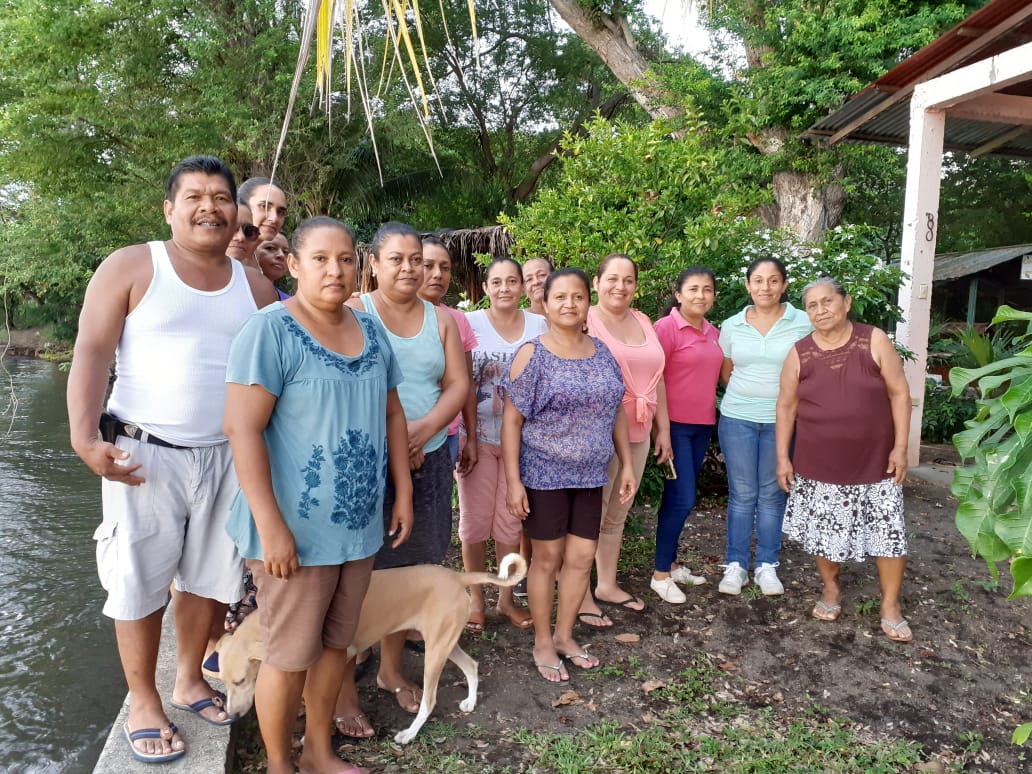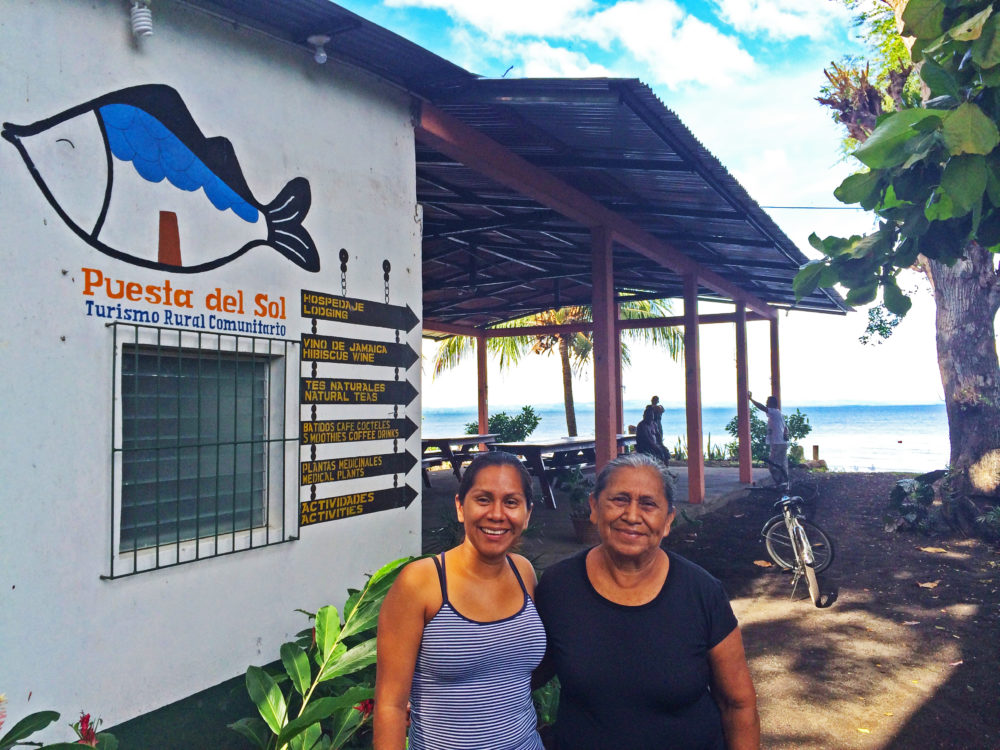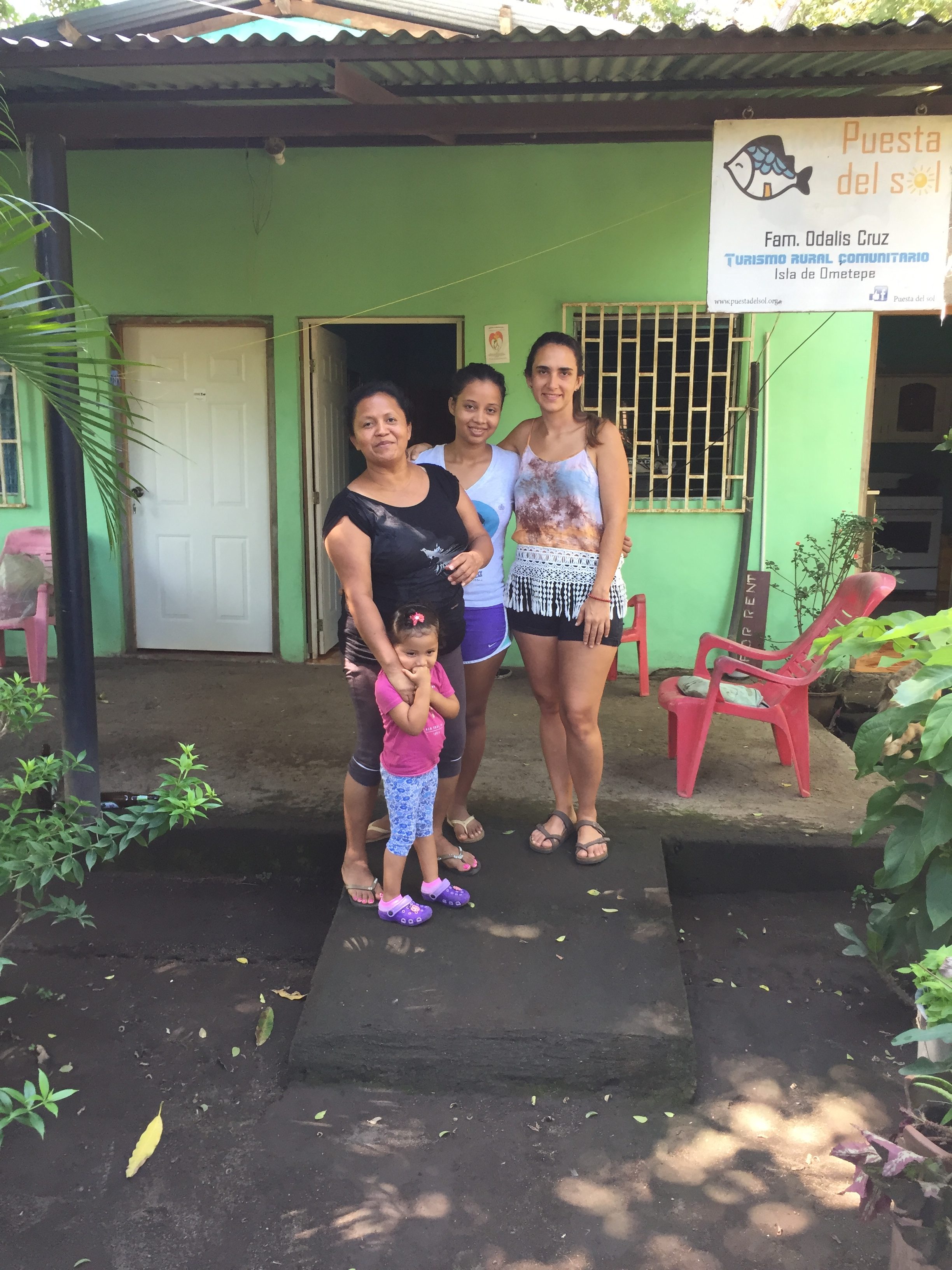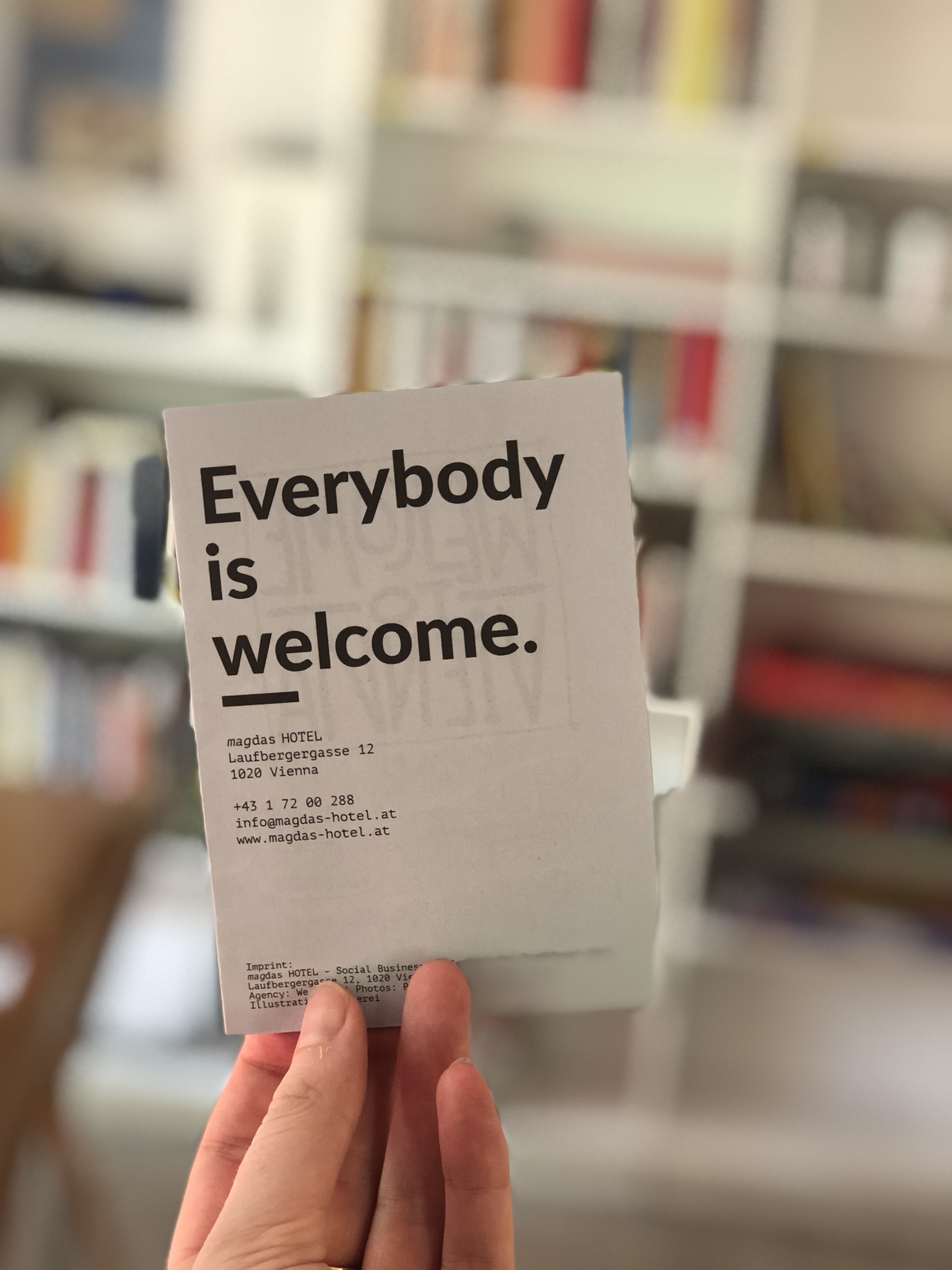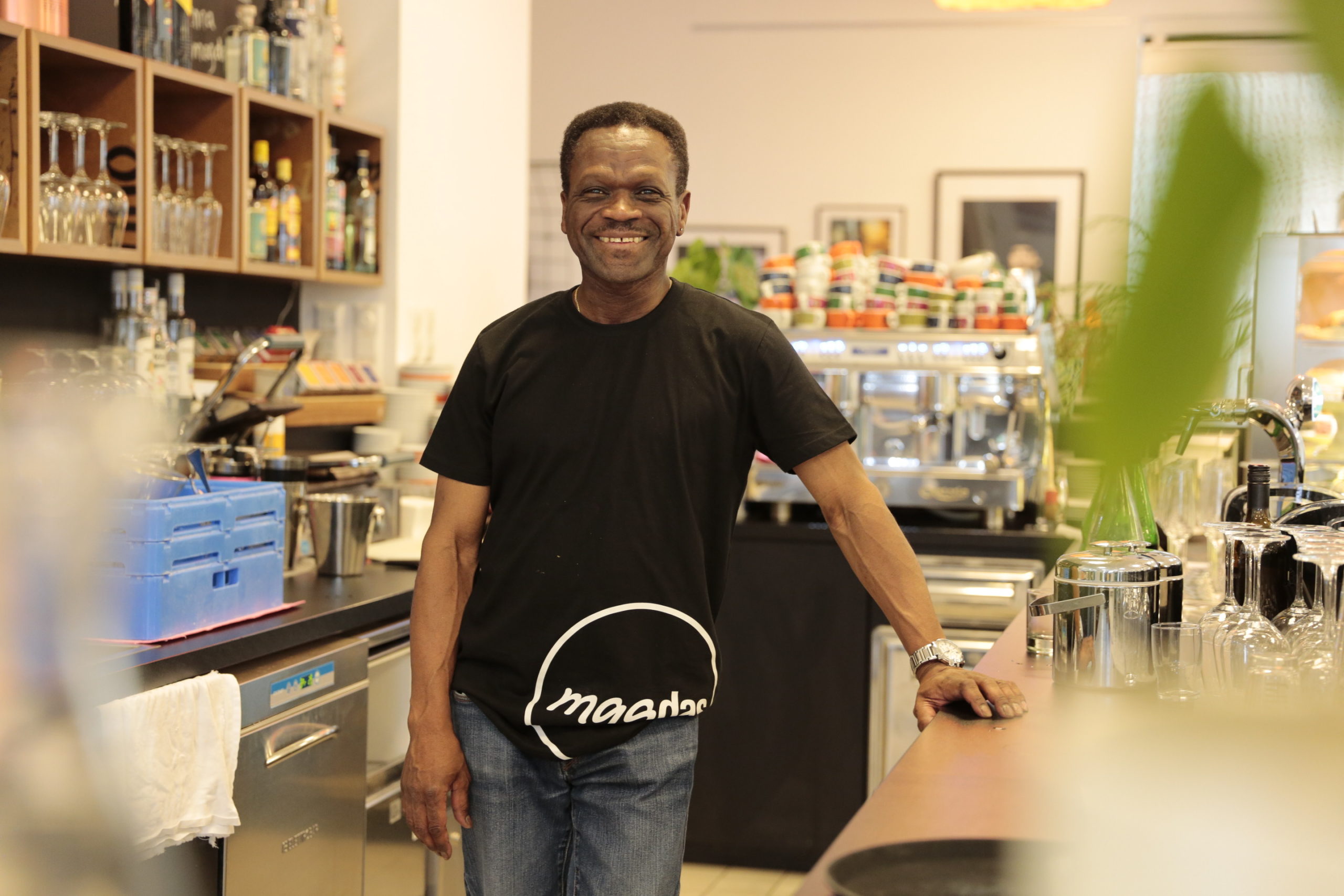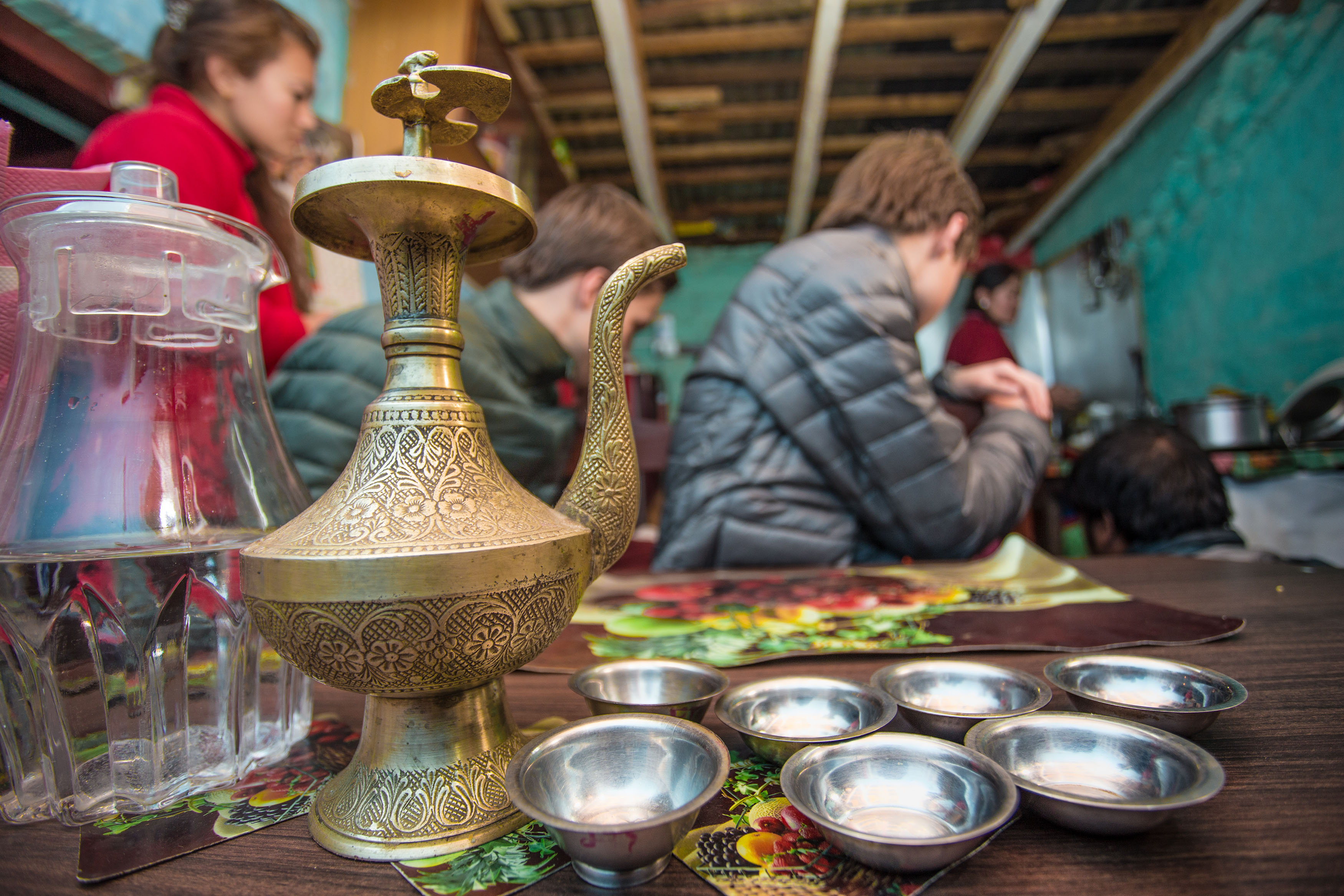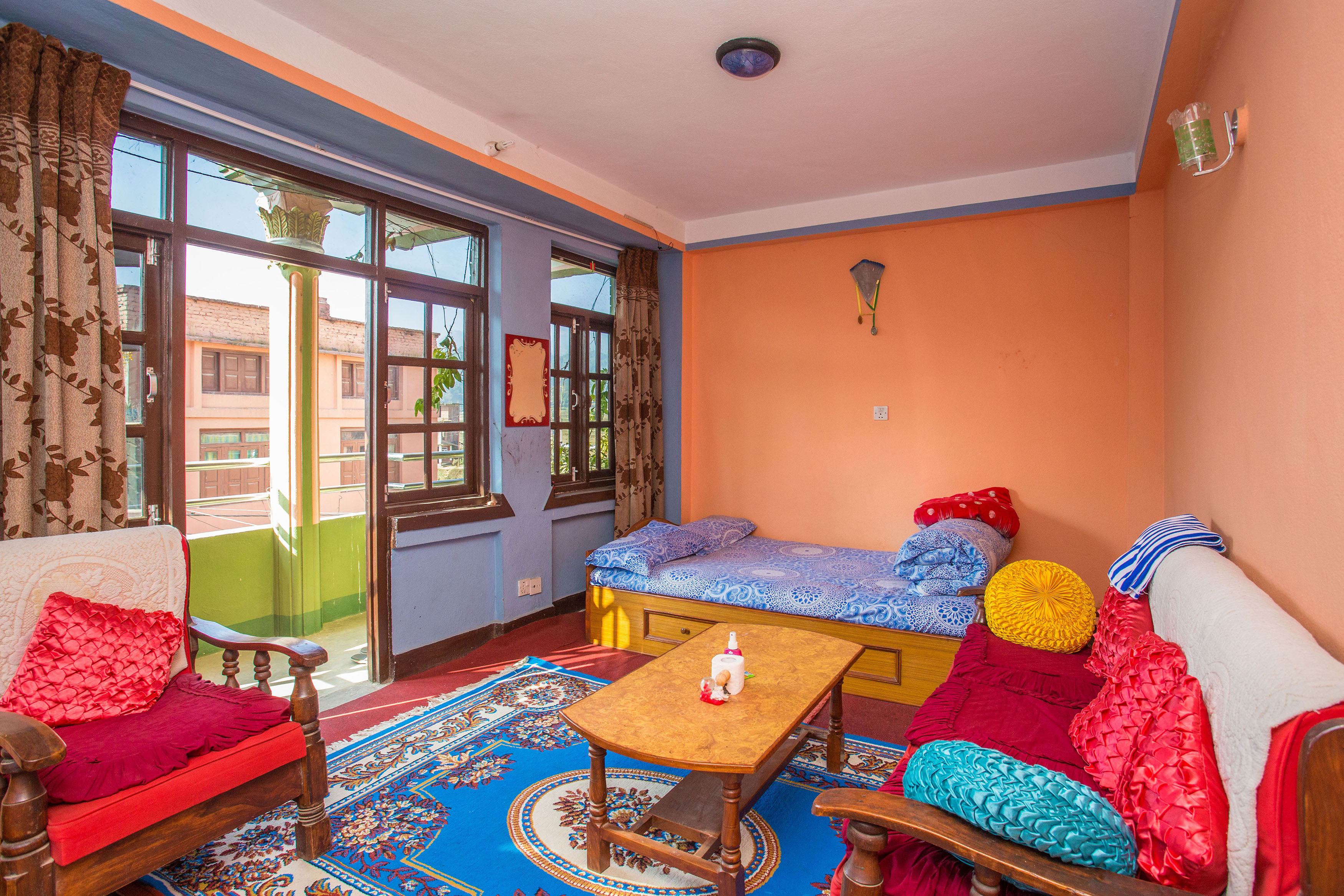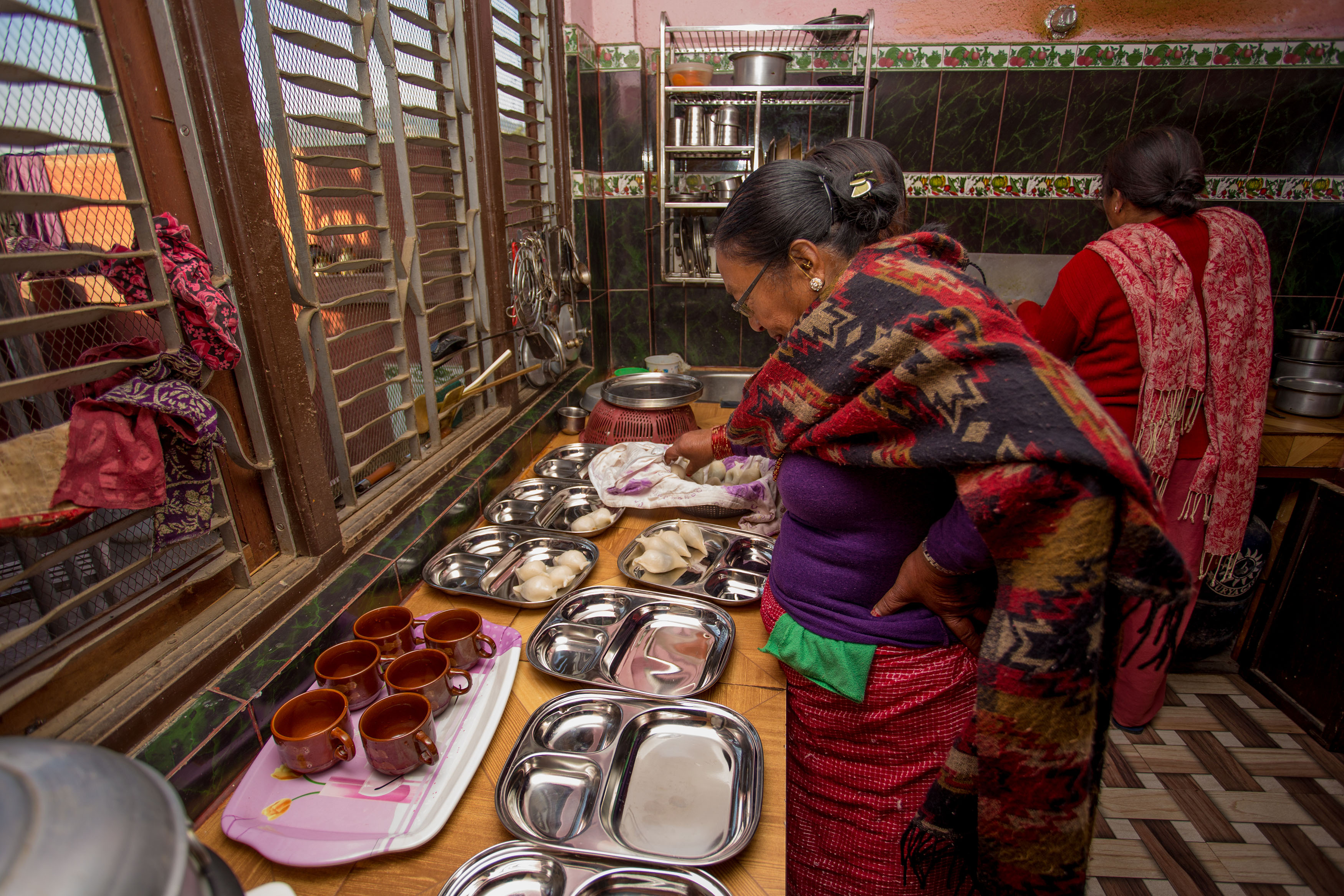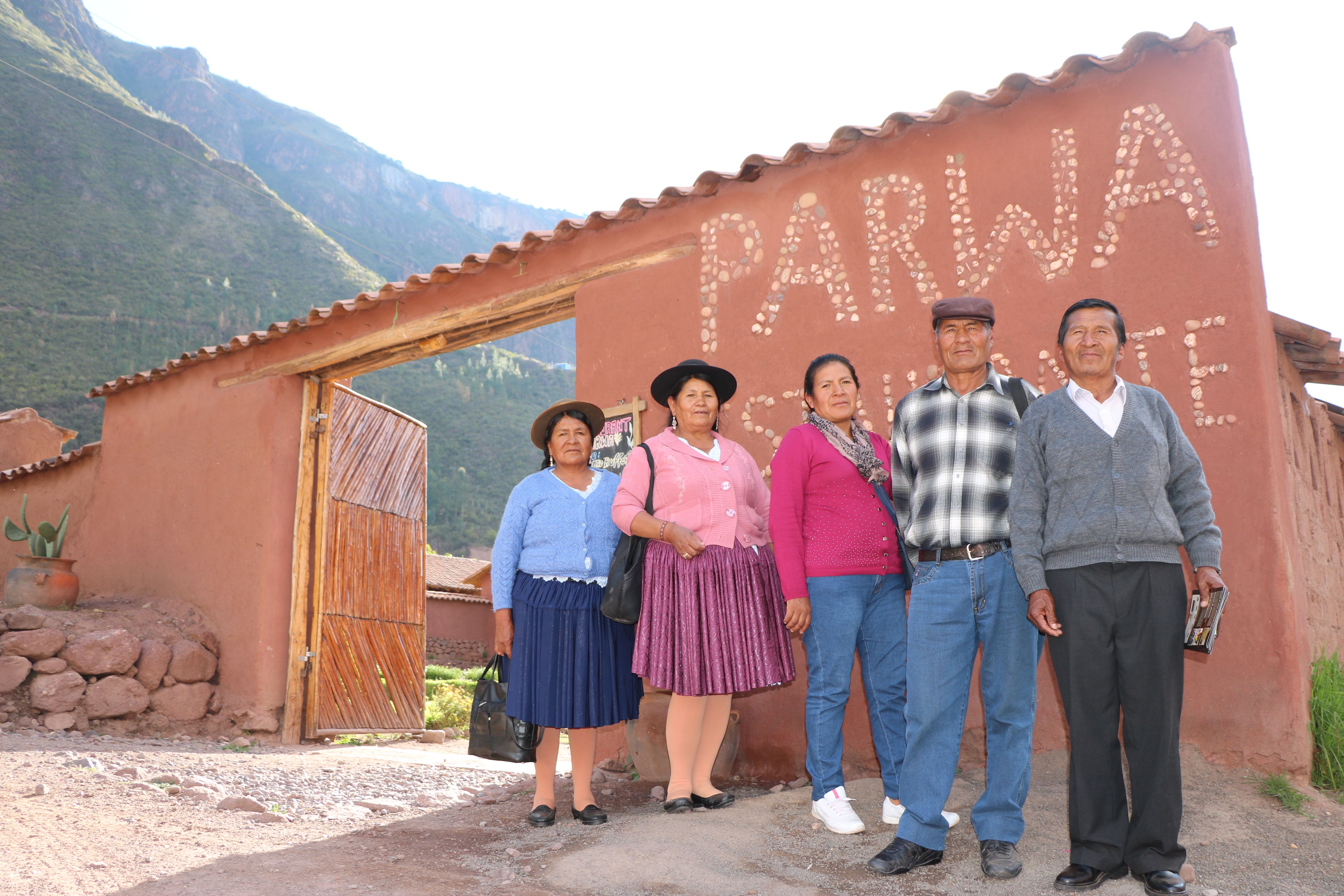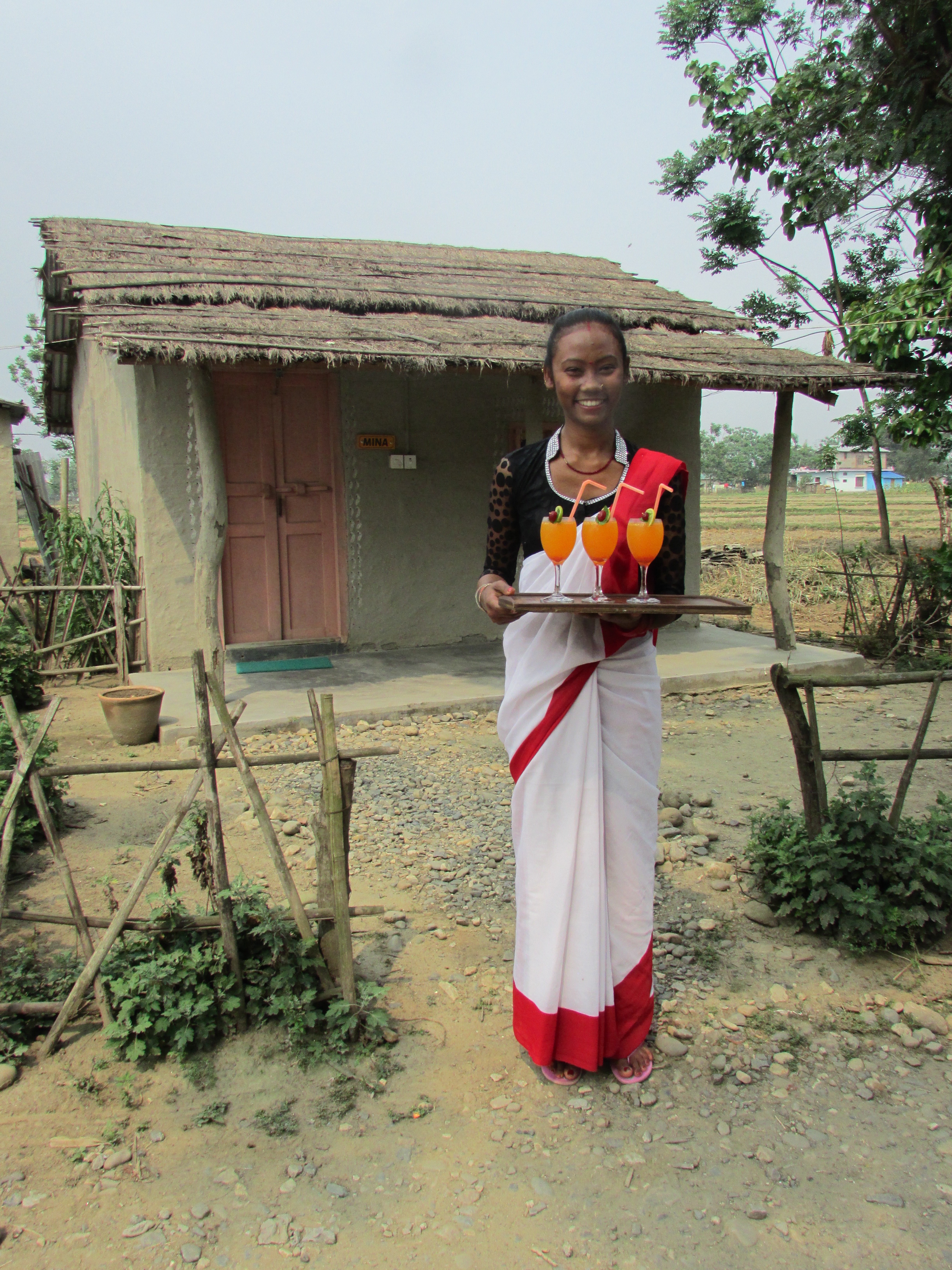It was a sweet welcome when I entered Barauli village, located on the west side of Chitwan National Park in Nepal. Not just because of the smiling faces and the delicious welcome drink, but because you could tell that this was a group of people that are sincerely so happy for you to be there.
After you go through a traditional Tharu welcome ceremony you are greeted by Jeevan Kumari with your (I cannot emphasize this enough) delicious welcome drink. Jeevan is a quiet yet confident woman with a graceful air about her. She mans the bar in the community restaurant and does so with pride.
The Barauli community has been running the homestay program for the last three years. With the support of Royal Mountain Travel, the community was able to construct individual room guest houses – much like a typical home – for travellers to stay. Jeevan had been completing her studies and was married just one year ago. After marriage she knew she needed to find something to do beyond her household chores. Encouraged by the tourists that visited her village almost every day, Jeevan decided to apply for a job in the restaurant. Now she works every day that there are guests and goes to spend time with her family on her days off.
Jeevan has noticed a lot of changes in her village since the homestay project began. “The tourists are helping us to keep our village clean”, she said. “When the tourists came, people noticed that they weren’t throwing plastic on the ground. Now everyone encourages each other to keep the community clean.” She goes on, “before we didn’t use soap – now we use it for our clothes and our dishes.” These small yet meaningful changes have led to an overall reduction in sickness in the village she reported, and now if someone does get sick, they know to call the doctor. Even child birth has improved since the community’s exposure into the tourism industry, with women choosing to call the doctor instead of the witch doctor when a woman goes into labour. The women also noted that before the homestay program was developed, they would have to bring all their vegetables to the market for sale, which was an extremely time consuming and difficult process. Today the homestay program purchases all their vegetables, meaning travellers get to enjoy local produce and women no longer have to make that difficult journey.
There’s been a lot of progress, but Jeevan is keen to keep moving forward. “Most people here are uneducated so I want to give them knowledge” she said. She hopes that someday she can be a teacher. Right now she is saving her money from her job to pay for her future plans, and to set more education programs in action for the youth of the village.
Changes in the community don’t stop there. With the assistance of Planeterra following the 2015 earthquake in Nepal, the community was able to install a solar energy grid, solar lights, western toilets, water tanks, and air conditioners to better improve the experience of their travellers. The street lights have improved the overall safety of students who leave Barauli early in the morning to travel to the college in the next village. Jeevan noted that other communities were noticing these improvements and starting to make plans of their own to introduce street lights.
Jeevan reflects that before the homestay program, girls often only went to school up until class 10. Today girls go on to further education and even take jobs in the city. Everyone is happy with these changes — including the men. Jeevan glowed as she stated how proud her husband was to share with other men that his wife was working at the homestay program. I would be proud too – the Barauli community has put together an amazing experience for travellers that come visit.
When you visit the Barauli Community Homestay in Nepal you are not only getting an authentic Tharu village experience, you are creating a better future for the children of the village. While Jeevan is not quite ready to have children of her own (she says she has far too much to accomplish before she can think about this) she is so proud to see that the children are now learning things she was never taught in college. Things are changing rapidly for Barauli, and it won’t be slowing down any time soon if Jeevan has anything to do with it.
After going on a jungle safari (sighting 8 rhinos!), seeing a traditional Tharu cultural dance and enjoying a delicious meal of Nepali curries, I retreated to my quaint room — basking in the peace and quiet that can only be found in such a remote setting.
The Barauli Community Homestay is proudly supported by Royal Mountain Travel and G Adventures. Rhea is the Asia Coordinator for Planeterra and was able to visit Baruali for the first time in April, 2017.
